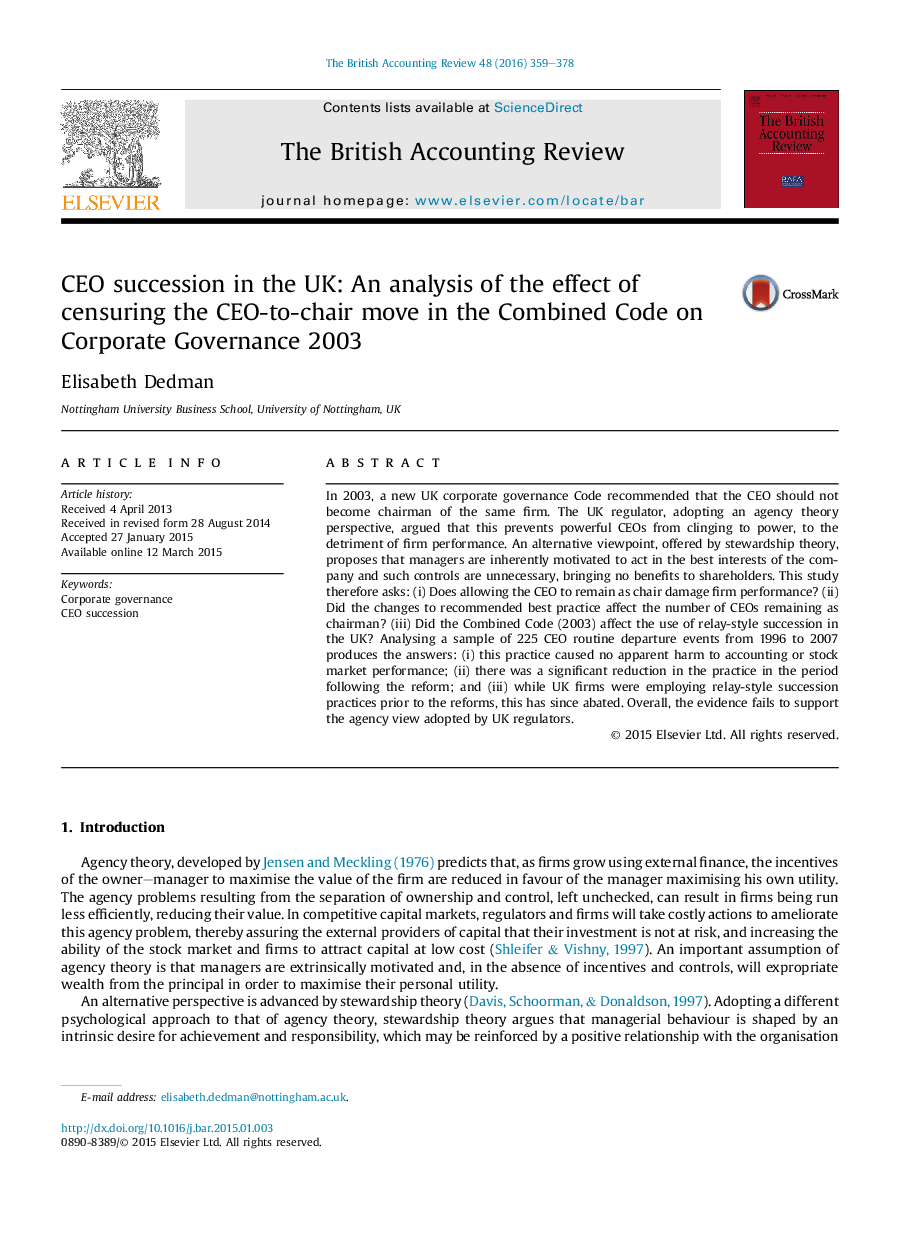| Article ID | Journal | Published Year | Pages | File Type |
|---|---|---|---|---|
| 6481271 | The British Accounting Review | 2016 | 20 Pages |
In 2003, a new UK corporate governance Code recommended that the CEO should not become chairman of the same firm. The UK regulator, adopting an agency theory perspective, argued that this prevents powerful CEOs from clinging to power, to the detriment of firm performance. An alternative viewpoint, offered by stewardship theory, proposes that managers are inherently motivated to act in the best interests of the company and such controls are unnecessary, bringing no benefits to shareholders. This study therefore asks: (i) Does allowing the CEO to remain as chair damage firm performance? (ii) Did the changes to recommended best practice affect the number of CEOs remaining as chairman? (iii) Did the Combined Code (2003) affect the use of relay-style succession in the UK? Analysing a sample of 225 CEO routine departure events from 1996 to 2007 produces the answers: (i) this practice caused no apparent harm to accounting or stock market performance; (ii) there was a significant reduction in the practice in the period following the reform; and (iii) while UK firms were employing relay-style succession practices prior to the reforms, this has since abated. Overall, the evidence fails to support the agency view adopted by UK regulators.
